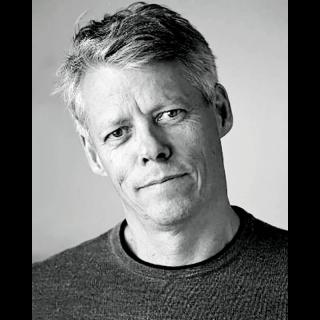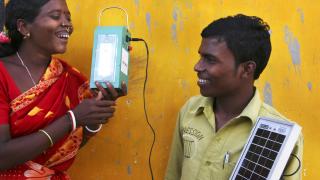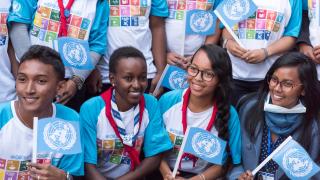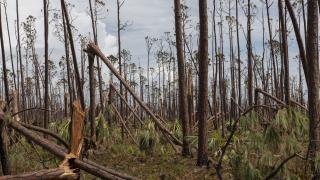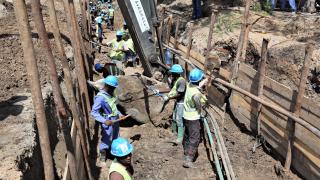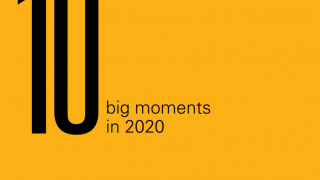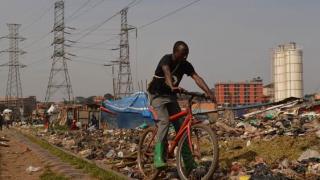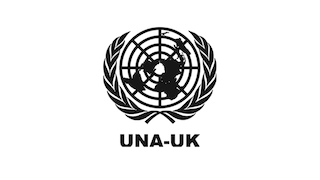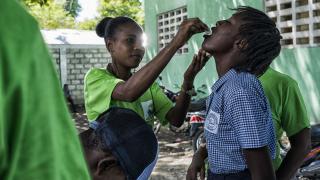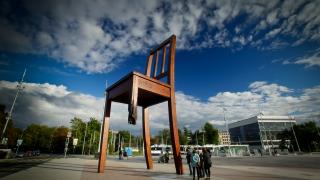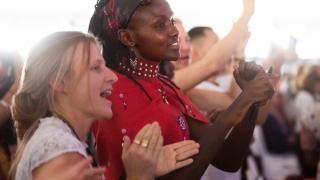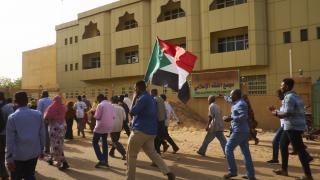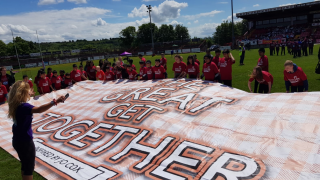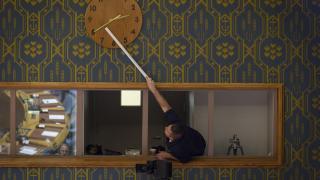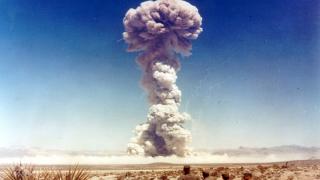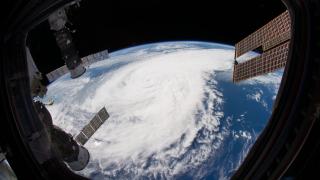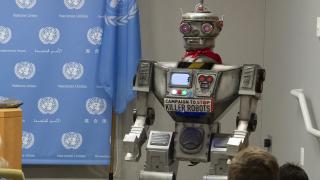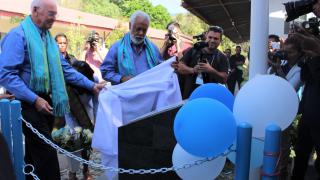
Since the founding of the United Nations 74 years ago, global co-dependence has increased significantly. Increased trade and the dissemination of technological advancements have contributed to people living both longer and better. Today, however, it is not just the lack of human rights or the risk of war that threatens humanity. Our patterns of production and consumption mean that we have over-utilized our common natural resources to such an extent that the survival of humanity is under threat.
Reports highlight how human fossil fuel combustion has led to irreversible climate and environmental developments. It has also become evident that our current global institutions are not developing at the same rate as this increased global co-dependency. The distance between the co-dependent risks and the institutions' ability to manage them has grown into a threatening "risk gap". A gap we hope will be seriously addressed by the upcoming UN75 reform agenda.
The Global Challenges Foundation was founded on the ambition to help reduce this risk gap, particularly as it relates to global catastrophic risks (GCRs). A GCR is a catastrophe that would cause the death of over 10 percent of humanity or cause a damage on a similar scale. Humanity as a whole may not rebound from the effects of such a disaster.
We have done this by:
- Informing the public and decision makers GCRs, which we count as: climate change, environmental risks, weapons of mass destruction, pandemics, antimicrobial resistance, new and emerging technologies, and unknown risks.
- Stimulating the development and dissemination of decision models to better manage GCRs.
- Raising awareness of these risks to elected representatives, business representatives, academia and other actors of change in civil society, and to include better management of GCRs in current reform programs of relevant institutions.
GCRs have become increasingly well known in the public eye, not the least in the minds of a younger generation. The emerging climate threat poses perhaps the greatest risk to future human life. Scientists warn of what will happen to human living conditions as temperatures rise and that our ability to deal with these threats will be crucial for future generations. The problem, however, is that we often lack common operational institutions to manage these risks.
Part of our work, therefore, concerns stimulating ideas on the development of new, better and more equitable multilateral decision-making models and supporting them throughout implementation. We arranged a worldwide competition where participants were invited to present new and improved decision models. The response was great and 2,700 proposals from 122 countries were submitted. Three proposals were awarded and have since been further developed with the support of the Global Challenges Foundation.
One of the winners, the team of Augusto Lopez-Claros, Arthur Lyon Dahl and Maja Groff, produced the suggestion: Global governance and the emergence of global institutions for the 21st century: selected modules addressing global catastrophic risks. This is a team that work or worked at the UN, the World Bank and the International Court of Justice (ICJ). Theirs is a radical proposal based on fundamental ideas discussed back when the UN was initially formed:
- A reform of the UN General Assembly with the establishment of a second chamber to enact laws and to mandate an executive council.
- The establishment of an Executive Council able to make binding decisions on global catastrophic risks.
- An extended mandate for international judicial review.
- An international security force organized by the UN.
- A proposal for new financing of the UN.
Innovative models need feedback, and we cannot image a better critic than the civil society activists; parliamentarians; academics; journalists; diplomats; and UN officials in UNA-UK Magazine’s readership. You can find the idea on the Global Challenges Foundation’s website. Your comments and ideas are much appreciated.
We are aware that cold winds are blowing against multilateral cooperation, but we still want to work to defend and develop the ideas that can strengthen it. We would like to know what you think the requirements are for any system of collective decisionmaking? In what areas do you think it is possible to gain support for reform of our global system? How would you start the process of change? Which actors are of particular importance when it comes to achieving a better common management of global catastrophic risks?
We hope, with the help of several insightful individuals and organizations, to gain a better understanding of how we can increase interest and debate on these issues. That is why we are also supporting UNA-UK in its development of Together First, a campaign committed to making the best ideas for global governance a reality and so building a global system that works for all.
Photo: Earth Observation taken during a day pass by the Expedition 40 crew aboard the International Space Station (ISS) - view of Hurricane Arthur 2014 © NASA/Alex Gerst

